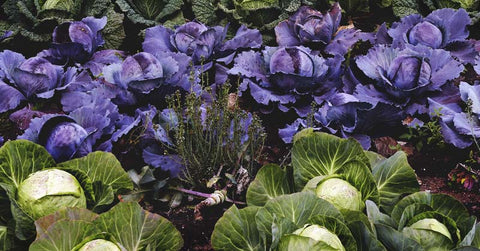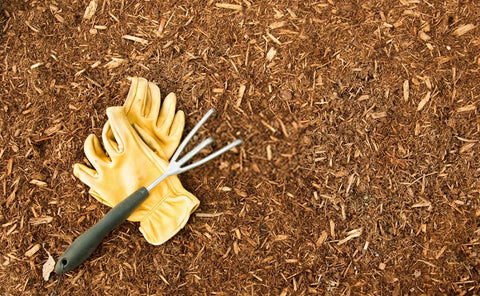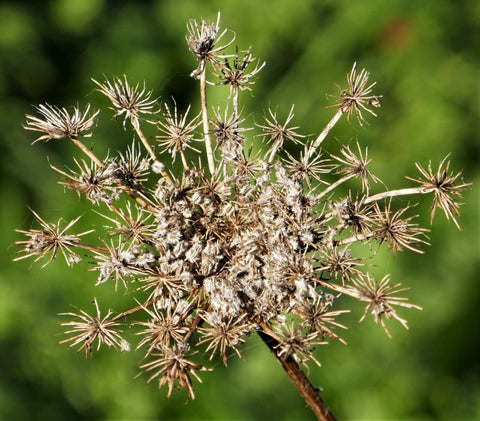In the world of gardening, there's a vast array of vegetables to choose from, each with its own unique flavors, textures, and growing requirements. While tomatoes, peppers, and cucumbers may be staples in many gardens, there are some lesser-known vegetables that are equally delicious and rewarding to grow at home. In this blog post, we'll shine a spotlight on three unique veggies – artichokes, asparagus, and Brussels sprouts – and provide you with all the tips and tricks you need to successfully cultivate them in your own backyard. From planting to harvest, get ready to embark on a culinary adventure as we explore the world of unique veggies and uncover the secrets to growing them at home.The following content also has some reference value for raised garden beds.

Unveiling the Unique Veggies
- Artichokes: With their striking appearance and delicate flavor, artichokes are a gourmet treat that's surprisingly easy to grow at home. These thistle-like vegetables thrive in mild, Mediterranean climates, making them an ideal choice for gardeners in temperate regions. Artichokes are perennial plants that produce large, edible flower buds known as "chokes." While they require a bit of patience to establish, once established, artichoke plants can yield bountiful harvests for years to come.
- Asparagus: Asparagus is another unique veggie that's prized for its tender spears and earthy flavor. Unlike most vegetables, which are annual, asparagus is a perennial plant that can produce delicious spears year after year. While it does require a bit of patience – as it takes a few years for asparagus crowns to become established – the payoff is well worth it. Once mature, asparagus plants can produce abundant harvests of fresh, tender spears each spring, making them a valuable addition to any garden.
- Brussels Sprouts: Brussels sprouts are small, cabbage-like vegetables that are packed with flavor and nutrition. While they may have a bit of a bad reputation, Brussels sprouts are actually quite delicious when prepared properly. These hearty plants thrive in cool weather and can withstand frost, making them an excellent choice for fall and winter gardens. Brussels sprouts are also remarkably versatile, making them a valuable addition to any kitchen garden.
Benefits of Growing Unique Veggies
- Culinary Adventure: Growing unique veggies like artichokes, asparagus, and Brussels sprouts allows you to expand your culinary horizons and experiment with new flavors and recipes. Whether you're grilling artichokes, roasting asparagus, or sautéing Brussels sprouts, these unique veggies are sure to add a delicious twist to your meals.
- Nutritional Value: In addition to their delicious flavor, unique veggies like artichokes, asparagus, and Brussels sprouts are also packed with essential nutrients, vitamins, and antioxidants. Incorporating these nutrient-dense vegetables into your diet can help support overall health and well-being.
- Sustainability: Growing your own veggies at home is not only delicious but also sustainable. By reducing your reliance on store-bought produce, you can minimize your carbon footprint and support local ecosystems. Plus, there's the added satisfaction of knowing exactly where your food comes from and how it's grown.

Tips for Growing Unique Veggies
- Location: Choose a sunny, well-drained location in your garden for planting artichokes, asparagus, and Brussels sprouts. These vegetables thrive in full sun and fertile, well-drained soil.
- Soil Preparation: Before planting, amend the soil with compost or well-rotted manure to improve fertility and drainage. Unique veggies like artichokes and Brussels sprouts benefit from slightly acidic soil, so consider adding lime if necessary to adjust the pH.
- Planting and Care: Follow specific planting instructions for each unique vegetable, ensuring proper spacing and depth. Provide adequate water and nutrients throughout the growing season, and monitor for pests and diseases. Mulch around the base of the plants to conserve moisture and suppress weeds.
- Harvesting: Harvest artichokes when the buds are firm and tight, asparagus when the spears are 6-8 inches tall, and Brussels sprouts when the sprouts are firm and about the size of golf balls. Regular harvesting encourages continued production and prevents the plants from becoming overcrowded.

Conclusion
Growing unique veggies like artichokes, asparagus, and Brussels sprouts at home is not only a rewarding experience but also a delicious one. By following these tips and techniques for cultivation, you can enjoy the unparalleled freshness and flavor of homegrown produce right from your own garden. So why wait? Get ready to embark on a culinary adventure as you unveil the delights of growing artichokes, asparagus, and Brussels sprouts – three unique veggies that are sure to elevate your gardening experience to new heights.









